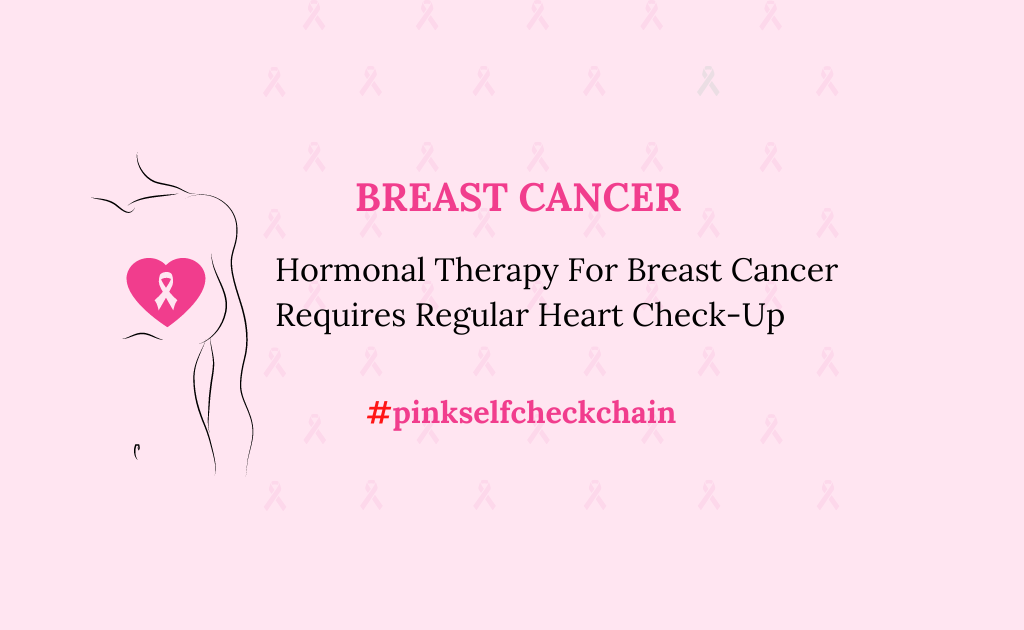Hormonal Therapy For Breast Cancer Requires Regular Heart Check-Up
Cardiovascular disease and cancer are some of the leading causes of death around the world. Hormone-dependent cancers like breast and prostate cancer are the most common after skin cancers in women and men, respectively. Many of the available treatment for these type of cancers are hormonal, however, these therapies also increase cardiovascular morbidity and mortality among survivors.
A new statement released by American Heart Association better describes the risks associated with specific hormonal therapies used to treat breast and prostate cancer. It also offers an evidence-based approach that could help both, prevent and detect adverse cardiovascular outcomes earlier.
Estrogen (female sex hormone) makes hormone-receptor-positive breast cancers grow, so, hormonal therapy medicines are used in two ways, first to lower the amount of estrogen in the body or second, to blocking the action of estrogen on breast cancer cells. The use of hormone therapies can reduce risk of recurrence after surgery or even slow or shrink more advanced breast cancers. Most people with hormone-receptor-positive breast cancer take hormonal therapy for at least 5 to 10 years after surgery.
In the recent past there has been a sharp increase in the number of cancer survivors, and almost proportionally there is an increased prevalence of heart disease among survivors. These circumstances require doctors to be highly effective in detecting and preventing adverse cardiovascular outcomes that may emerge in these groups. This is especially relevant in those with breast and prostate cancer because heart disease has become the leading cause of death among people treated for these two cancers.
There are a number of risk factors that make people more susceptible to cardiovascular issues, but having two or more comorbid conditions warrants a referral to a cardiologist before starting a hormone treatment. This will help your cardiologist establish a baseline of your cardiovascular health and therefore better monitor changes to your heart health and set a schedule for future appointments.
In patients who are already undergoing hormonal treatments for cancer, it can be helpful to have a discussion with your cancer care team to help determine if a cardiology referral is recommended.
Staying vigilant can help in early detection of any anomalies in heart health. This results in more favourable outcomes of treatments through collaborative efforts of your cancer care team and cardiologist.
References: Source: Impact of Hormonal Therapies for Treatment of Hormone-Dependent Cancers (Breast and Prostate) on the Cardiovascular System: Effects and Modifications A Scientific Statement From the American Heart Association Tochi M. Okwuosa, DO, FAHA, Chair; Alicia Morgans, MD, MPH; June-Wha Rhee, MD; Kerryn W. Reding, PhD, RN; Sally Maliski, PhD, RN; Juan-Carlos Plana, MD; Annabelle Santos Volgman, MD, FAHA; Kendall F. Moseley, MD; Charles B. Porter, MD, FAHA; Roohi Ismail-Khan, MD, MSc, Vice Chair; on behalf of the American Heart Association Cardio-Oncology Subcommittee of the Council on Clinical Cardiology and the Council on Genomic and Precision
Know the cancer – Breast cancer treatment
Previous :Lumpectomy And Radiation Is Better Than Breast Removal For Early Stage Breast Cancer

